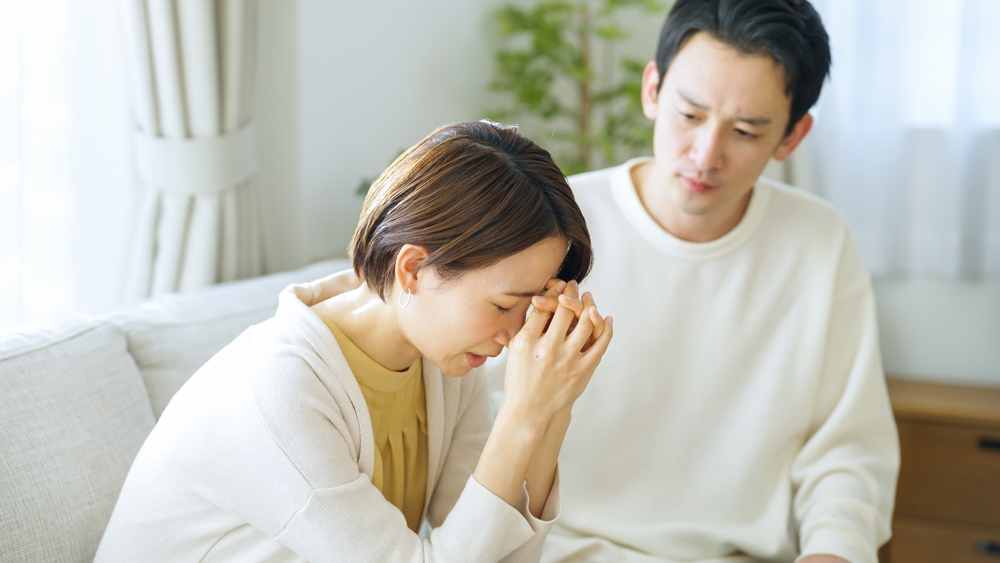
Postpartum depression, while not talked about as much and often misunderstood, is very common. According to the National Institutes of Health, around 1 in 7 women develop postpartum depression after bringing a child into the world. The question is, if postpartum depression is so common, why isn’t it talked about enough?

Postpartum Depression and Anxiety
Having a baby is a difficult, incredible, and exhausting experience. With the hormones going crazy in your body, the life transition that having a child brings, and the physical toll it takes on your body, you can expect that it would bring about some difficult emotions. So why are these difficult emotions not often talked about? The answer is, unfortunately, stigma and shame. Society puts pressure on women to snap right into being the “perfect” mother and to love every part of it. A lot of women feel like if they were to reach out for help for their overwhelming feelings of sadness and hopelessness after having their baby, they might be shamed for it. The anxiety of it all can be too much to handle, so many women suffer alone. I am here to tell you that there is nothing wrong with experiencing postpartum depression or anxiety, you are not wrong or bad for having these feelings. After all, you can’t help it. You do not choose if you are going to experience postpartum depression/anxiety or not, it simply happens. The best thing you can do for yourself, and your baby, is to seek support.
Symptoms of Postpartum Depression and Anxiety
Having overwhelming emotions and crying bouts right after childbirth is actually expected, and is referred to as the “baby blues”. Doctors let women know that this is normal due to rapid hormonal changes and to just ride it out for the first few weeks, things typically go back to normal after 2-4 weeks. If after 4-6 weeks you are still feeling these overwhelming emotions and find yourself sobbing every day, there might be a larger issue at hand. Some symptoms of postpartum depression include:
- Depressed mood or severe mood swings
- Crying too much
- Difficulty bonding with your baby
- Withdrawing from family and friends
- Inability to sleep or sleeping too much
- Overwhelming tiredness or loss of energy
If you find yourself experiencing these symptoms longer than a month after childbirth, reach out to your doctor about postpartum depression. Please note that very often women share that they don’t notice it right away and it “sneaks up on them.” Regardless of when and how these symptoms start, it’s always a good idea to reach out for support.

Therapy Healing
It is completely understandable that reaching out about these symptoms can feel scary and overwhelming. You may feel like you will be judged, or even abandoned for expressing these feelings. If you have experienced childhood trauma or abandonment trauma in your past, that adds a whole other layer to your fears of reaching out for help. Please hear me when I say that there is absolutely nothing wrong with reaching out for help, it is actually the best thing you can do for yourself and your baby. There is nothing wrong with you as a woman or as a mother, postpartum depression and anxiety is out of our control. The only thing in our control is how we address these feelings and reach out for help. Whether you are alone in this struggle and need anxiety or women empowerment therapy, or if your partner would like to get involved too and try out couples therapy after becoming parents, there are plenty of options for the type of support you can receive. You deserve to be happy and enjoy this new chapter of your life. Don’t hesitate to reach out to us.
References: https://www.ncbi.nlm.nih.gov/books/NBK519070/


